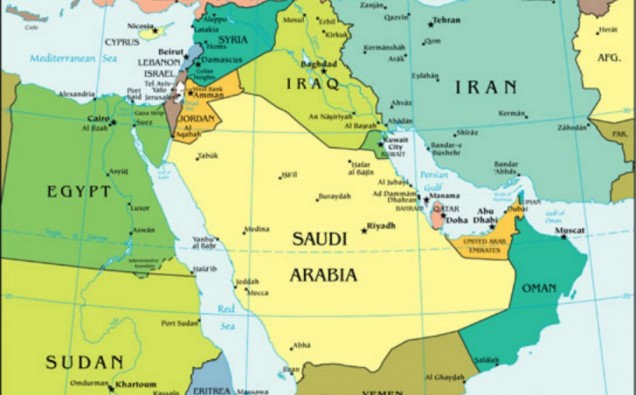
An agreement between deeply divided countries in Vienna on a new UN diplomatic initiative toward ending the Syrian imbroglio and U.S. decision to send a small number of troops for an assistance mission in the north of the devastated country are significant developments. Nevertheless, both moves also hold potential for peace and prospects for further perils alike.
Analysts believe the two developments signify a “too little too late” case as too much Syrian blood has been spilled in the last more than four years, and the region has suffered horrendously from both the rise of militant groups like the ISIS or Daish and Bashar al Assad’s state terror.
Yet, any further delay would only have further prolonged Syrian nightmare and heaped on a vault of questions confronting the United Nations and the international order for their inability to stem the tide of horrible violence in the Middle East.
The UN-led diplomatic process will aim at working out a ceasefire and holding new elections, with the next round of talks between world leaders expected in two weeks to give a concrete shape to the initiative. Top diplomats from major and regional powers including Iran and Saudi Arabia agreed on the protection of Syria’s unity, independence, territorial integrity as well as ensuring a secular character. The UN-assisted process will involve the Syrian regime and opposition to start a “a political process leading to credible, inclusive, non-sectarian governance, followed by a new constitution and elections.”
Since dictatorial regimes responded to the Arab Spring demands for democracy with brutal suppression in 2011 the Middle Easter descent into anarchy, bloodshed and chaos has been so steep that when divergent parties Russia, Assad, Iran, Hezbollah on the one side and the United States., Saudi Arabia and the EU on the other, somehow come together under the United Nations banner, it naturally raises peace prospects – that finally the bloody chapter of massacres in the Middle East and mass migrations may come to a close.
But there are realpolitik crisscrossing interests of regional countries, and Syria, at the moment, happens to be at the intersection of regional and global tensions.
Take the example of Turkey, the most powerful Middle Eastern state with modern economic base, a strong military and a large progressive middle class. Ankara has its own set of concerns as it does not want the Kurds in northern Syria to grow so stronger on the 60 miles-long Turkish-Syrian border that the Syrian Kurds might join hands with Turkish Kurds to form a united force. Saudi Arabia has warned that the Iranian involvement in Syria is more precarious than the threat of Daish. Iran, which has its own strategic interests in Syria, has made it clear with its all-out support for Assad that it would stick to its position what come may.
Then in the much larger global perspective, Russia has found another reason to show its brazen assertiveness with a heightened military campaign against all of the forces fighting the Assad regime, be they U.S.-backed moderates, Daish or any other common Syrian people. The U.S. decision to deploy special operation forces to wipe out Daish and Russian military involvement present a unique situation in recent history with both Washington and Moscow engaging militarily in the same country, ostensibly with both common and divergent interests. The U.S. has been clear in its position that any ultimate political or diplomatic rapprochement must see Assad’s exit since the dictator has widely used barrels and chemical weapons to kill his own country people. According to the UN estimates more than 200,000 Syrians have lost their lives int he conflict pulling Syria apart in multiple directions.
So what is the way forward in terms of implementation of the Vienna accord? Will the UN be able to show leadership with its third diplomatic initiative in the more than four years old war? Will Russia and Iran on the one end, and US, Saudi Arabia on the other end of the spectrum, show flexibility and accommodate concerns to bring peace to the shattered country, whose troubles, now coupled inextricably with the Iraq – another story of civil war devastation – have already spawned the deadly Daish? Like al-Qaeda before it, the Daish has already started extending its tentacles to other countries like Afghanistan.
Among the gigantic tasks will be an effort to frame a new democratic constitution that oversees a transfer of political power to the elected leadership. A democratic order must be based on mutual respect, sectarian harmony and multi-ethnic coexistence.
Connected to this would be the fate of Assad. How and when will he be removed from Syria’s bloodstained national scenario?
Secondly, how Saudi Arabia and Iran, whose parochial policies, enmity and support for militancy, have brought so much suffering to the Middle East, will see their interests are protected.
Thirdly, what will the world pledge for Syrians, who have gone through so much of physical, and psychological harms?
And then, will the Obama White House and Vladimir Putin be ready to meet half way, when Moscow’s newfound power to interfere in other countries has ratcheted up bilateral tensions? For its part, Washington has shown initial flexibility in terms of not predicating a diplomatic drive with timeline on removal of Assad.
The global and regional powers have much to answer for in the upcoming months. Syrians deprived of their basic rights, hearth and home, as well as millions of Iraqis rendered political outcasts by post-war Tehran-influenced Baghdad and beleaguered Yemenis facing Saudi intervention, will be watching along with rest of the digitally connected world.











